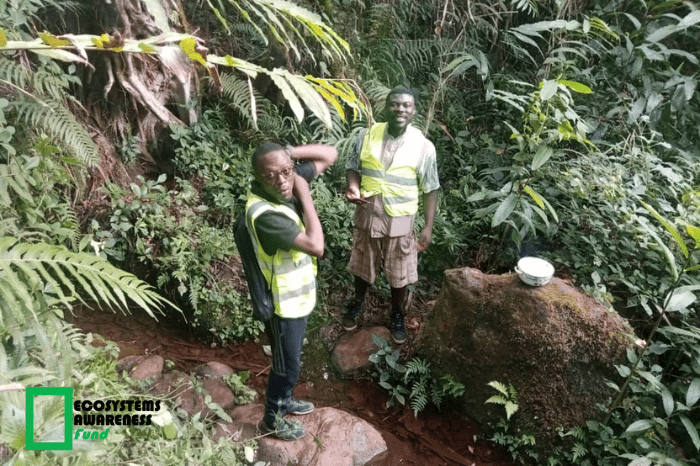Threats to the natural water catchment points feeding the Mbembo fall

Natural water catchment points play an essential role in managing water resources and providing a reliable supply of fresh water. However, these points are under threat from a variety of sources, including deforestation, water pollution, and climate change. In this blog post, we'll explore the threats faced by natural water catchment points, (the case of the Mbembo Fall in the Bamunkumbit vilage in the North West Region of Cameroon).
One major threat to natural water catchment points is deforestation. When trees and other vegetation are removed from an area, the land is left vulnerable to flooding and erosion, which can damage and disrupt the water catchment points. Additionally, deforestation reduces the amount of water that can be stored in the catchment points, and can reduce the water quality by increasing sediment levels and reducing the amount of oxygen in the water.
Another major threat to natural water catchment points is water pollution. Pollutants such as fertilizers, pesticides, and industrial waste can contaminate the water, making it unsafe for drinking or other uses. Additionally, pollutants can reduce the oxygen levels in the water, which can harm aquatic life and disrupt the ecosystem.
Climate change is another major threat to natural water catchment points. Warmer temperatures and changing rainfall patterns can affect natural water catchment points adversely.

Our mission at Ecosystems Awareness Fund (EAFund) is to research, explore and disseminate information on human activities and initiatives aimed at protecting, restoring, and enhancing environmental quality towards good environmental integrity, human cultural and economic viability.

